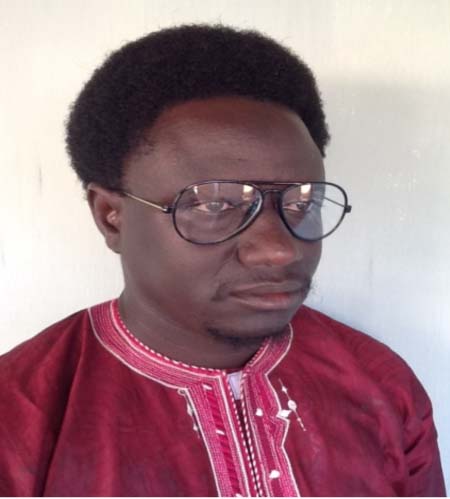
The National Coordinator of the Creating Opportunities for Rural Youths, CORY-Project-Gambia, Mamadou Edrissa Njie, has launched an appeal to the Central Project Coordinating Unit (CPCU) under the Ministry of Agriculture for financial support to the CORY Project to enable them conduct more training activities for youths.
Mr Njie made the appeal while briefing journalists about the forthcoming training of 25 youths scheduled to start from 3 to 14 January 2016, at Jenoi in the Lower River Region.
The training course has attracted 11 participants from the North Bank Region and 14 from the Lower River Region, and is being funded by the NEMA project in partnership with the CORY Project.
He thanked the management of the NEMA project for their timely intervention in approving such funding for the training of young people of the country.
According to Mr Njie, the CORY Project needs additional funding of 40 per cent, but as he spoke they only had support from the NEMA Project to train 50 young people.
“We need about $50,000 to conduct more training programmes,” Mr Njie, said, adding that the CORY project is calling on the central government and CPCU under the ministry of Agriculture to come on board to support them to train more young people of the country.
According to him, the move is one way of addressing the “back way syndrome”, adding that whether you are carpenter, welder man or tailor the contribution of every citizen to national development is key.
He disclosed that the CORY project is targeting different sectors of life ranging from mechanics, small-scale business, poultry production, animal husbandry, cattle rearing and sheep fattening, tailoring and fishing.
Therefore, supporting the CORY project is a step in the right direction in improving the livelihood of the people, which is in line with the country’s development blueprint.
“The training is fully coordinated and implemented by the management of the CORY project under CORY National Director, who doubles as the coordinator of Global Youth Innovation Network GYIN- Gambia chapter,” he said.
The training workshop aims to empower young people to become self-reliant, and to discourage young people from illegal migration, he added.
Mr Njie further said this was the second batch of young people who are benefiting from training with the NEMA funding.
The expectation is to train 25 young people to link them with microfinance institutions, and for them to open their bank account with banks of their choice.
“We received a positive feedback that most of the young people have now started opening their own account, whereas before most of them did not have a bank account,” he said, adding that 80 per cent of them who have attended the training courses with the CORY project have an account in the banks.
He said the CORY Project could not fund the third micro-finance component without having a bank account, and this was why they want all the young people to be responsible and to endeavour to open an account.
“The project has three components, and component one is research and surveys, component 2 is the entrepreneurship training programme and component three is micro-lending.”
He spoke at length on the need for the banks to be ready to venture into agriculture, as many of the banks before see agriculture as a risk area for them to venture into because of the loan recovery duration.
“We are appealing on the microfinance institutions to accept signing an MoU with the CORY project, and also give our young people long-term loans with less interest, like 10 per cent.”
Mr Njie also underscored some of their successful training programmes, and said many of the rural people now have started opening a bank account, which is an achievement for the CORY Project.
Many of them have now been linked to microfinance institutions, as well as conventional banks, he stated.
According to him, the project had also met its target number in terms of capacity building of the youths, and that from 150 to 200 young people have now benefited from the CORY project.
He highlighted some of other achievements, ranging from creating a Facebook page as well as twitter where the project could share latest updates and information with its donor agencies.
He also revealed that more than 90 per cent of the youths who attended CORY training can now use a computer, which is a big achievement.
He lamented some of their constraints, such as a lack of laptops and mobility, as most of the rural people did not have laptops and they need to use the internet for efficient service delivery.
He called on donors and for agricultural projects intervention in assisting them to secure laptops and mobility for efficient service delivery.
Amie Faye, GYIN-Gambia rural region coordinator, said the management of the Cory Project is well prepared to implement the training activities to the letter, to ensure that the right skills and knowledge are given to the participants.
She gave the success story of their previous training sessions, and that this is a replica of those previous training activities.
She added that all what is needed is for the young people to take the entrepreneurship training seriously, as it would guide them in preparing a business plan for the future.
The project is out to support the rural regions, and is not for people based in the urban areas, he said.
Read Other Articles In Article (Archive)


